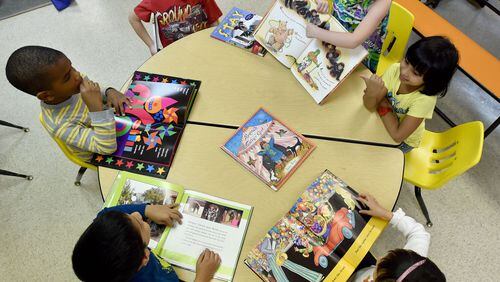A state study released Thursday found children who attend Georgia pre-kindergarten classes are showing improvement in math and language skills, but many Spanish-speaking students were still behind their classmates in some areas by the time they completed kindergarten.
“Children at lower levels of English proficiency showed greater growth in most language/literacy, math, and behavior skills than children at higher levels of proficiency,” officials wrote in an executive summary. “Although they made greater gains on the various outcome measures, they generally entered pre-k with lower skills and still had not caught up to their peers by the end of kindergarten.”
State lawmakers authorized several studies of Georgia’s pre-k program in 2011. At the time, some national experts worried the quality of Georgia’s often-lauded program was in peril because several states were spending more money per student.
The state study, which began in 2013, follows a sample of 1,169 children from pre-k through third grade. Several school districts, such as Atlanta and Gwinnett, are exploring ways to improve pre-k learning, particularly for low-income students and those who speak limited English.
Gov. Nathan Deal said in a statement he was pleased with the progress reported in the study.
“Building a strong foundation for the growth and development of Georgia’s youngest learners has remained a top priority of mine since taking office,” said Deal. “The primary skills these children acquire in effective Pre-K and kindergarten programs put them on track to read at grade level by the third grade, a significant predictor of future academic success.”
About the Author







